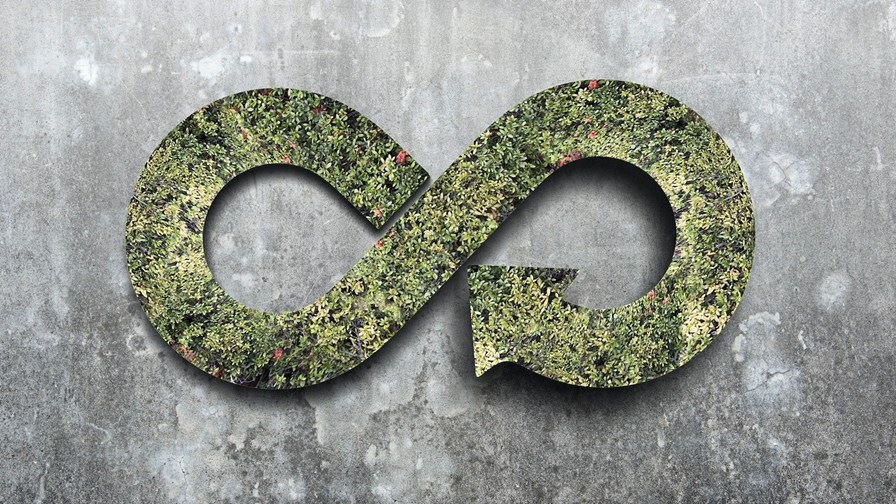
- Telefónica and Tele2 pledge to have 100% circularity for their network systems by 2025
- Social, environmental and financial benefits are highlighted as main positives from extending the shelf life of telecoms equipment
- Other operators also continue efforts towards ambitious sustainability goals
Telefónica and Tele2 set ambitious goals to achieve 100% ‘circularity’ of their respective network systems by 2025, pointing to the environmental and financial benefits from extending the shelf life and then the recycling of telecoms equipment.
Spanish operator Telefónica announced a commitment to reuse, resell or recycle its entire network equipment in less than three years’ time.
These efforts are part of a broader Circular Economy Plan to achieve “Zero Waste’ by 2030 that outlines that the company’s waste is neither incinerated nor thrown out – rather, it’s transformed into raw materials which are then reintroduced into the value chain. For network equipment waste, the goal is to save it from being discarded by the end of 2025.
Telefónica also pledges to refurbish and reuse 90% of routers and decoders collected from customers by 2024. A year later it will also add certain circularity and eco-design criteria in customer electronic equipment. In addition, it also plans to refurbish 500,000 mobile devices annually by 2030.
According to Telefónica CTIO, Enrique Blanco, the circular economy brings efficiency benefits to the company’s operations.
“From the design to the recovery and reuse of equipment, it provides both economic and environmental benefits, such as CO2 [carbon dioxide] emissions savings, which helps us to achieve our goal of net zero emissions by 2040, including our value chain,” he emphasised.
It appears Telefónica is not just talking the talk when it comes to environmental sustainability. By the end of 2021, it claims to have reused nearly 5 million pieces of electronic equipment, which includes more than 300,000 mobile phones. It has also recycled 98% of its waste and has launched a programme that identifies surplus equipment and makes it possible for its life to be extended.
Telefónica also highlighted the need for a circular economy as it cited data from the World Resources Institute, which has found that only 8.6% of the current yearly consumption of mineral, biological, metal and fuel resources (more than 100 billion tonnes in total) is being recycled or reused.
The operator aims to have zero net emissions in its four main markets by 2030. (See Telefónica advances zero net emissions target to 2030.)
And Telefónica isn’t the only telco committing to such sustainability measures: Swedish operator Tele2 has also made a similar commitment. It claims to be the first telecoms player in its home market to commit to have 100% circularity for its network equipment by 2025. To hit the target, it plans to “responsibly” resell, reuse, remanufacture or recycle its kit. When it comes to non-recyclable materials, it promises to dispose of them in a secure way.
Moving to a circular economy “is important from an environmental, social and economic perspective” due to the rapid technological change and shorter product lifecycles, explained Viktor Wallström, Tele2’s EVP Communications & Sustainability, in this statement.
He argued that “there are obvious financial benefits to Tele2 from increased circularity, and we are seeing increased demands from our customers to address this issue.”
The company said circular economy is one of the four focus areas in its sustainability strategy, which also outlines a vision to reduce greenhouse gas emissions across its value chain by 60% per subscription by 2029. In fact, circular economy is seen as a key part of this goal, according to Yogesh Malik, EVP CTIO at Tele2. “We will be working with our suppliers to achieve our aims and creating opportunities for our customers to change their reuse and recycling behaviour,” he added.
Tele2 has already achieved a milestone from its sustainability plan: It is climate neutral in its own operations since April 2020.
Both Telefónica and Tele2 issued their statements on circular economy on World Water Day (22 March 2022), shortly after industry association the GSMA outlined challenges and areas of improvement in this field. The group recommends a set of steps, including current equipment to be in active use for longer (from five to seven or eight years, for instance) which will also optimise budget constraints; shared infrastructure between operators; refurbished kit to be afforded an equal status with new equipment in business requests and proposals; and ensuring energy efficiency is a priority in network equipment.
In other recent sustainability developments:
- Swedish operator Telia issued its second green hybrid bond of €500 million and pledged proceeds will be invested into more energy efficient networks, including switching from copper to fibre and deploying 5G. See more here.
- Vodacom touted reduction of water consumption in South Africa by 75% compared to the amount used in 2017 through conservation strategies.
- UK satellite company Inmarsat tied up with Norwind Offshore, a vessel owner that supports the development of renewable offshore energy, covering connectivity and digitalisation needs for three Service Operation Vessels operated by Norwind. Read more.
- Philippines-based operator Globe mobilised its partner ecosystem to provide a platform that connects multi-sectoral stakeholders and encourages “collective action towards achieving sustainable and inclusive development for communities by leveraging the power of technology.” Focus areas include hunger alleviation and providing livelihood opportunities to vulnerable families.
- Yanitsa Boyadzhieva, Deputy Editor, TelecomTV
Email Newsletters
Sign up to receive TelecomTV's top news and videos, plus exclusive subscriber-only content direct to your inbox.




